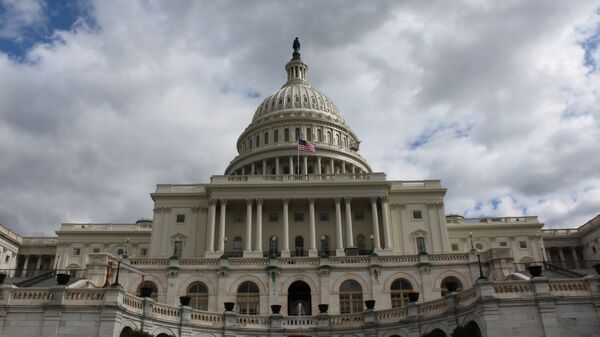Kristian Rouz — The US Senate on Wednesday approved the legislation known as the ‘Trade Promotion Authority' (TPA), proposed earlier by the Obama administration in order to facilitate the establishment of the long-awaited Trans-Pacific Partnership (TPP). The TPP is largely perceived as cementing US domination of international trade in the Asia-Pacific region, and is seen by its opponents as a discriminatory conspiracy by the US and their political allies against such economic heavyweights as mainland China or Russia. In turn, the TPA provides the executive power in Washington with a legal opportunity to bypass the lengthy procedures of America's democracy (chiefly, the endless coordination with the anti-Obama Congress) during the final negotiations with the overseas TPP partners.
The domestic US struggle over the projected TPP has been volatile and humiliating for the President at times, and, despite the TPP is still far from its completion, the Senate approval of the TPA bill has finally freed the hands of the Obama administration. The White House is now empowered to concentrate on finalizing the deal at the international level without constantly over their shoulder to Capitol Hill and their accompanying destructive criticism and resistance.
After the TPA bill is signed into law by President Obama, the Congress will only be able to vote aye or nay on the finalized TPP provisions, without the right to tweak and amend them.
The TPP is a deal between the US and 12 Asia-Pacific nations, comprising some 40% of global trade. The ‘Fast-Track' body proponents say that it will allow the Obama administration to negotiate the most favourable conditions for US participation in the TPP, like lower tariffs for exported US-made goods. Opponents insist that the TPA bill is a further sighn of degeneration of the American democracy, as the ‘regime in Washington' is de-facto allowed to play its global game without being sanctioned by the people's representation in Congress.
Obama's White House tenure effectively ends within a year and a half, and the TPP is one of the fundamental projects of Obama's presidency, a perceived historical deal the President is determined to achieve by any means necessary. Thus, if he needs to bypass the will of the people to strike the final TPP accord by November 2016, so be it.
Now, Obama sees the TPP as cementing America's leading role in international trade and as an efficient tool to counter mainland China's creeping ‘checkbook diplomacy'. At the same time, the TPP is a part of a lager-scale US-led global project, along with the TTIP (Transatlantic Trade and Investment scheme), uniting all the friends of America into an exclusive privileged economy club, a ‘wider first world'.
The remaining nations are thus doomed to mire in the economic despair of resource-based models (as breakthrough modernization technologies will hardly leave the new US-led club), suffering from underinvestment (with all the liquidity capital rushing into the safer assets, enjoying the joint backing of the biggest global players). Such nations will hardly have a chance to transform their developing economies into the advanced-nation model within the framework of the coming new reality.
The TPA bill, approved yesterday in Washington, is only bringing this new world order closer.




